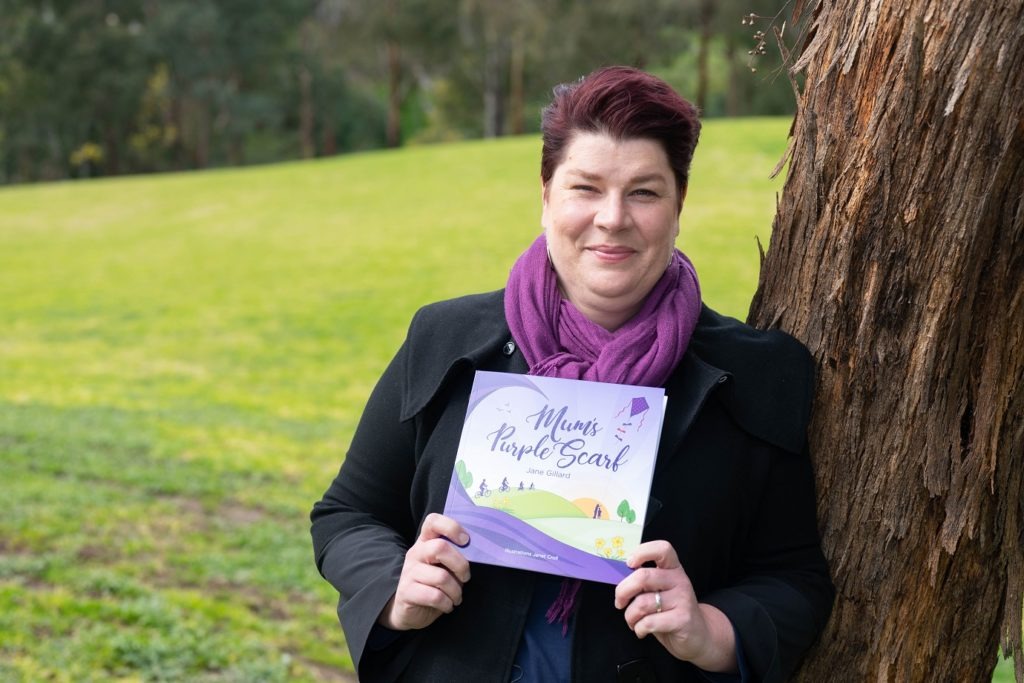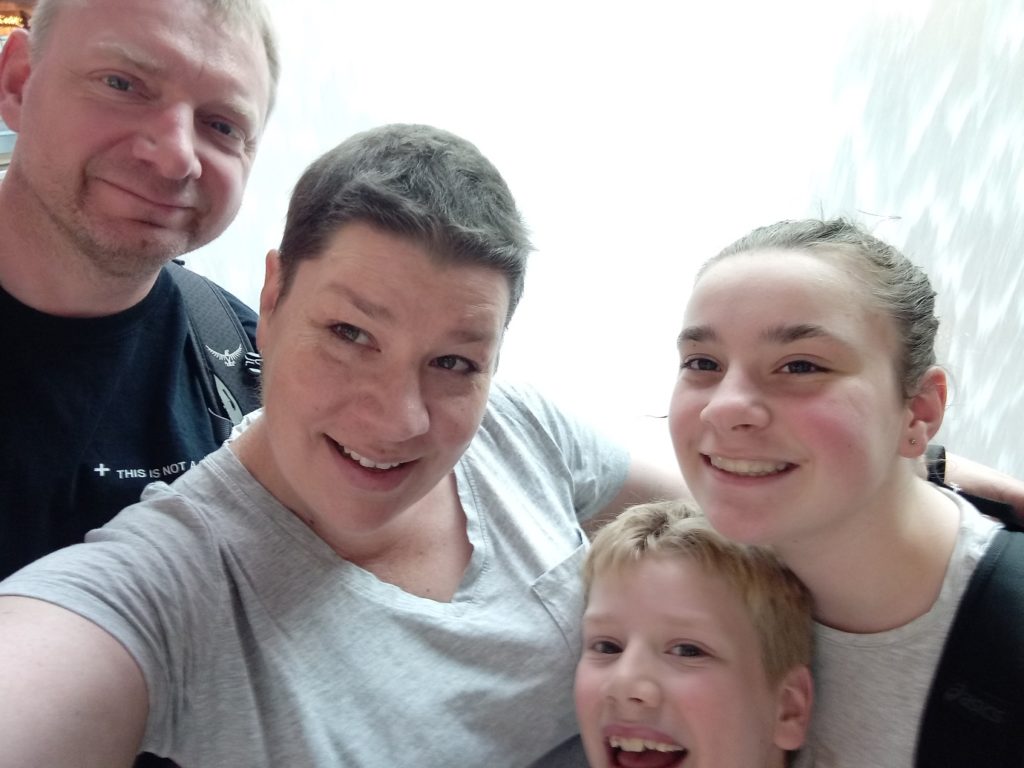A cancer diagnosis is devastating.
I got mine on a busy afternoon during school holidays 20 minutes before I was due to pick my daughter up from a birthday party.
I had two part time jobs, two primary school aged kids and my husband worked long hours. I remember telling the GP that I simply didn’t have time for cancer.
But the devastating news changed everything.
My diagnosis
Before the diagnosis, I had been doing a lot of cycling and walking and was fitter than I had been in years. I felt great – but then I caught a cold and couldn’t seem to shift a persistent cough.
This went on for a few weeks. I remember having to rest as I walked up two flights of stairs and thinking how unfit I was compared to six weeks earlier. I was sure I had pneumonia and was given antibiotics by my GP.
Things dragged on and I was set for an x-ray and then recalled and sent for a CAT scan. I was working from home when I got ordered back into the GP for the results.
He said it looked like lymphoma. Hold on… wasn’t that a cancer?
I felt like the rug had been pulled out from under me. How was I going to tell my two beautiful children, Freya (then 10) and Gordon (then 7)? I had no idea what I faced but I knew I didn’t want to hide something this big from them.
The CAT was followed by a PET scan which revealed that my body was riddled with cancer. It was everywhere. I had tumours throughout my torso, my spleen had doubled in size and the cancer was in my bone marrow. How had I missed it?
I was admitted to hospital days later to start chemotherapy.
How to break it to them?
The speed of my diagnosis and the start of treatment meant I didn’t have time to research or plan. I asked the oncologist how to tell the kids and she told me not to lie to them. Keep it simple and keep it straight, she said.
In the end, my husband, Scott, had to break the news.
In the days that followed, there were many questions. I found the Cancer Council’s Talking to kids about cancer booklet online which was an incredibly useful resource as I needed advice from people with experience in this field.
However, what I really wanted was a picture book I could read with Freya and Gordon and help them to prepare for what they were going to face.
I had been given information to prepare me for my journey but there was nothing for them.
What did my diagnosis mean for them? How would it affect them?
I found books about a parent dying of cancer or books aimed at kids who were diagnosed with cancer themselves.
But the book needed to help me teach my kids about the implications of my diagnosis to my kids didn’t exist.
So I wrote one.

The truth that needs to be told
Mum’s Purple Scarf was written to help other parents with that devastating conversation.
It aims to help prepare primary school-aged children learn what to expect when they have a parent being treated for cancer.
It is about the practical aspects of having a parent being treated for cancer. It is about Mum being tired and grumpy, about visits to hospital and extra play dates, and about having to do more to help around the house.
Everything in the book actually happened. We did get three lasagnes in a day and my brother does entertain the kids with fart jokes. And I did nearly drop my hair in the kids’ sandwiches.
My friend, Janet, illustrated the book and the artwork is beautiful – lightening the tone of a difficult topic.
I wanted something good to come out of my experience and this book is my gift to other parents who are facing the same journey in the hope that it will make things a tiny bit easier for them and their children.

***
My treatment journey was long, hard and something I don’t want to remember in detail. I had six rounds of chemotherapy and immunotherapy which took up to seven hours in hospital each because I had a severe allergic reaction to one of the drugs.
When that didn’t work, I was given salvage therapy and underwent an autologous stem cell transplant.
I lost my hair, twice, was hospitalised with the flu, had dozens of trips to the hospital and was calmed by the professionalism of the staff at the Olivia Newton John Cancer and Wellness Centre.
The stem cell transplant involved more short stays in hospital followed by three weeks in the same room. When I got home, I spent most of my time on the couch and was also pushed into menopause. I felt like I was nearly destroyed and then rebuilt.
However, through it all, I found kindness everywhere. School mums I didn’t even know dropped food off to my house. Friends took my children to school. My cleaner cleaned my house for free for months. My mother flew back and forth from Tasmania to help out and my husband took over the mental load of organising our family.
Two years on, if feels like I have woken from a nightmare but I know that I am stronger than I ever thought I could be.
My kids have grown. They don’t want to remember or talk about when I was sick.
Ironically, not one of the people I dedicated this book to has read it! But that is ok because they know how it ends.


